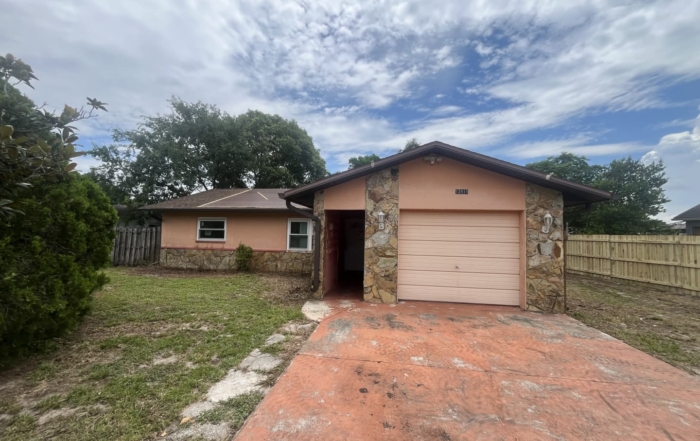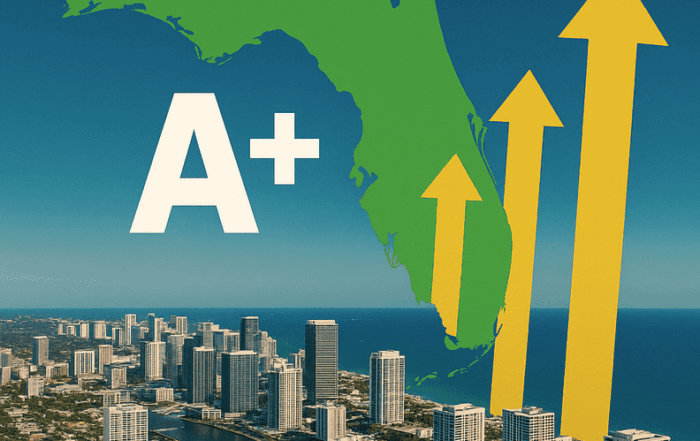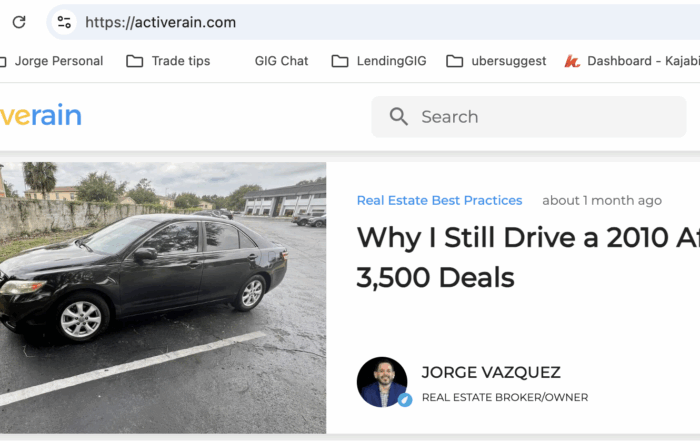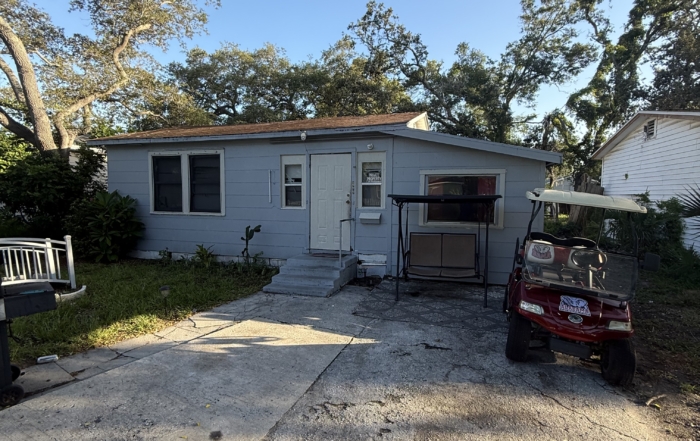
How to Spot Real Estate Opportunities in Pinellas Post-Hurricane: A Guide for Opportunistic Investors
By Jorge Vazquez, CEO of Graystone Investment Group
Natural disasters like hurricanes often disrupt real estate markets, creating temporary chaos and long-term opportunities. When a hurricane hits a region like Pinellas County, it can lead to a surge in distressed properties, creating opportunities for savvy investors willing to take calculated risks. In this comprehensive guide, we’ll explore how to identify post-hurricane real estate investment opportunities, analyze market trends, and develop strategies for maximizing returns. I’ll also share insights from Leo Florin, a seasoned broker associate at Graystone, who sheds light on the immediate impact of Hurricane Helene on the local real estate market.
1. Understanding the Impact of Hurricanes on the Real Estate Market
Hurricanes cause severe damage to infrastructure, housing, and utilities. This disruption often results in a decline in property values in affected areas. However, while this may seem like a negative outcome for homeowners, it presents an opportunity for investors. The damage caused by hurricanes can lead to an influx of distressed properties—homes that need repairs, are sold at lower prices, or are left vacant due to displacement of residents.
In Pinellas County, Hurricane Helene has caused extensive flooding and storm surges, damaging several properties and displacing residents. These conditions create an urgent need for sellers to offload damaged properties, offering investors the opportunity to acquire them at a discount. With careful planning and a strategic approach, these properties can be restored and either flipped for a profit or converted into rental units.
2. Distressed Properties: A Goldmine for Investors
Distressed properties are typically homes that are facing foreclosure, have been damaged by natural disasters, or are otherwise in need of significant repairs. Investors looking to buy distressed properties post-hurricane can capitalize on lower purchase prices, provided they are willing to invest in renovations.
Types of Distressed Properties to Consider:
- Foreclosures and Short Sales: Property owners who can no longer afford their mortgage payments may opt for a short sale, selling their homes at a lower price to avoid foreclosure.
- Damaged Homes: Properties that have sustained damage but are structurally sound can be acquired at a fraction of their pre-disaster market value.
- Vacant Properties: Some homeowners may abandon their properties entirely after a disaster, leading to opportunities to purchase these properties through auctions or direct negotiations.
3. Local Insights: Market Trends in Pinellas County Post-Hurricane
Experts in the local real estate market have observed that the recent hurricane has led to a significant decrease in the supply of rental properties. This is due to extended power outages and severe damage to many homes. In some areas, entire buildings are expected to be uninhabitable for several months, forcing many residents to seek alternative housing options.
This sharp reduction in available rental units is likely to result in higher rental prices as demand surges. Investors who can offer viable housing solutions during this period may benefit from increased rental income, as displaced residents look for new accommodations.
4. Key Strategies for Post-Hurricane Real Estate Investment
A. Identify Target Areas
Focus on neighborhoods that have been heavily impacted but have strong potential for recovery. Look for areas where local governments and communities are committed to rebuilding. In Pinellas County, coastal areas that experienced storm surges or flooding could see a revitalization, making them prime locations for investment.
B. Leverage Local Expertise
Partnering with local real estate agents, contractors, and property managers is crucial. They can provide valuable insights into market conditions and help identify properties that are worth investing in. Working with a local property management company can also help manage the complexities of restoring and renting out distressed properties.
C. Plan for Higher Insurance and Repair Costs
Post-hurricane repairs can be extensive and costly, often requiring specialized contractors and adherence to updated building codes. Factor these costs into your investment calculations. Additionally, insurance premiums in hurricane-prone areas may increase, affecting your overall return on investment.
5. Types of Post-Hurricane Investment Opportunities
A. Single-Family Homes
Single-family homes are often the first properties affected by hurricanes due to their location in suburban areas. Investors can buy these homes at a discount, rehabilitate them, and sell or rent them out once the market stabilizes.
B. Multi-Family Properties
Multi-family properties, such as apartment buildings or duplexes, can offer higher returns on investment if renovated and rented out quickly. Due to the higher number of units, the rental income from multi-family properties can provide a stable cash flow, even in turbulent markets.
C. Modular and Mobile Homes
As mentioned by Leo Florin, modular and mobile homes are particularly vulnerable to hurricanes. Investing in this property type requires careful consideration of local regulations and rebuilding
How to Spot Real Estate Opportunities in Pinellas Post-Hurricane: A Guide for Opportunistic Investors (Continued)
and Zoning Restrictions
As mentioned by Leo Florin, modular and mobile homes were particularly vulnerable to Hurricane Helene. Investing in this property type requires careful consideration of local regulations and rebuilding standards. For example, modular homes that were destroyed may need to comply with new elevation and floodproofing standards, which could add to the cost but also enhance the value and safety of the property in the long term.
In the aftermath of Hurricane Helene, it’s not uncommon to see entire neighborhoods or communities re-zoned or marked for redevelopment. Investors who can navigate these changes and work with local governments and zoning boards to secure permits and approvals will have a strategic advantage. Additionally, investing in modular and mobile home parks can be lucrative, as these types of communities tend to see increased demand during post-hurricane housing shortages.
6. Leveraging the Short-Term Rental Market
When housing inventory is low, short-term rentals can become a viable option for displaced residents, government officials, or workers assisting with disaster recovery. Pinellas County, a tourist destination, has a well-developed short-term rental market, making it an attractive option for investors. Even if you plan to hold properties for the long term, short-term rentals can provide immediate cash flow until the market stabilizes.
- Airbnb and Vacation Rentals: Consider renting out your properties as short-term vacation rentals. With many hotels and traditional accommodations damaged, visitors and temporary residents may prefer private homes.
- Government and Insurance Contracts: In some cases, government agencies or insurance companies will rent properties to house displaced residents or recovery workers. These contracts can provide stable income and are often for longer periods than typical short-term rentals.
7. Understand the Local Recovery Efforts and Government Programs
Local governments often establish recovery programs and incentives to encourage rebuilding and redevelopment after a natural disaster. In Pinellas County, for instance, the Disaster Rental Assistance Program is being rolled out to help residents whose homes were substantially damaged by Hurricane Helene(
). Understanding these programs can provide a strategic advantage by offering information on areas of focus, available grants, and other support.
Programs to Look For:
- Rebuilding and Renovation Grants: Some governments provide funds to help rebuild damaged homes. These can be leveraged to reduce the cost of renovations.
- Tax Incentives: Post-disaster redevelopment zones may qualify for tax relief or incentives that can boost your return on investment.
- Community Reinvestment Programs: In some cases, local governments or nonprofits may partner with investors to restore communities, providing additional resources and support.
8. Key Metrics to Evaluate Potential Investments
When evaluating properties post-hurricane, it’s important to go beyond typical financial metrics. Here are a few unique factors to consider:
Property Condition Assessment
- Structural Integrity: Flooding and wind damage can affect the foundation and framing of a house. Be prepared to bring in structural engineers or specialized inspectors.
- Environmental Hazards: Post-hurricane properties may have mold, asbestos, or contaminated soil, which can be costly to remediate.
- Utility Access: As Leo Florin mentioned, some buildings may be without power for 4-6 months. Ensure that the property has or will have reliable utility access before purchasing.
Market Demand Analysis
- Rental Demand: With a limited supply of rental units available, rents are expected to increase, making this an opportune time to invest in properties you can rent out quickly.
- Sales Comparables: Use recent sales data from similar properties to determine potential after-repair value (ARV) and profit margins.
- Local Job Market: Areas with a robust job market are likely to recover faster, making them ideal for long-term investment.
9. Financing Options for Post-Hurricane Real Estate Investments
Securing financing for distressed properties can be challenging, especially when dealing with properties that have sustained significant damage. Traditional lenders may be hesitant to approve loans for such properties, but there are alternative financing options:
- Hard Money Loans: These loans are typically easier to secure and offer quick funding, making them ideal for distressed property acquisitions. However, they come with higher interest rates and shorter repayment periods.
- Private Lenders: Some private lenders specialize in funding for distressed properties, offering more flexibility and personalized terms.
- Joint Ventures and Partnerships: Partnering with other investors or real estate companies can provide the capital needed to take on larger projects.
10. Mitigating Risks in Post-Hurricane Investments
While the potential rewards of post-hurricane investing can be substantial, the risks are equally significant. Here’s how you can mitigate them:
- Work with Experts: Partner with local contractors, property managers, and legal experts who understand the local market and building regulations.
- Secure Comprehensive Insurance: Ensure you have adequate insurance coverage, including flood and wind damage, to protect your investment.
- Have a Contingency Plan: Budget for unexpected costs and delays. It’s not uncommon for post-disaster projects to encounter hurdles such as permit delays or material shortages.
11. Long-Term Outlook for Pinellas County Post-Hurricane
Despite the short-term disruption caused by Hurricane Helene, the long-term outlook for Pinellas County remains positive. The area’s strong tourism industry, beautiful beaches, and desirable climate will continue to attract residents and investors. As recovery efforts progress, property values are likely to rebound, offering substantial appreciation potential for investors who buy now.
Market Rebound Factors:
- Tourism and Hospitality Recovery: As hotels and attractions are rebuilt, the tourism industry will bounce back, boosting demand for rental properties.
- Community Redevelopment: Local governments and community organizations will focus on revitalizing affected areas, making them more attractive for future residents.
- Infrastructure Improvements: Hurricanes often lead to infrastructure upgrades, such as improved drainage systems or reinforced buildings, which can increase property values.
12. Leveraging Local Networks for Success
Success in post-hurricane investing is often about who you know as much as what you know. Establishing relationships with local property managers, real estate agents, and contractors can provide early access to opportunities and help you navigate the complexities of the local market.
Final Thoughts
Investing in real estate after a hurricane requires a unique set of skills and a willingness to take on higher risks. However, for those willing to dive in, the rewards can be significant. By focusing on distressed properties, understanding local recovery efforts, and leveraging short-term rental opportunities, investors can build a profitable portfolio in Pinellas County. As Leo Florin emphasized, “The limited supply of rentals will increase prices,” making this an ideal time to capitalize on a recovering market.
Call to Action: Click the Get Started button to begin your journey into real estate investing with Graystone Investment Group and unlock exclusive post-hurricane opportunities in Pinellas County.
Why You Should Sell Your Deals with Us
Jorge Vazquez2025-08-02T03:43:24+00:00August 2nd, 2025|Comments Off on Why You Should Sell Your Deals with Us
Let’s keep it real—wholesaling ain’t easy. You lock up a deal, hustle to find a [...]
For Sale: 12914 Buckhorn Dr, Hudson, FL 34669
Jorge Vazquez2025-08-01T19:08:10+00:00August 1st, 2025|Comments Off on For Sale: 12914 Buckhorn Dr, Hudson, FL 34669
12914 Buckhorn Dr, Hudson, FL 34669 [...]
Landlords, Listen Up: Florida’s A+ Economy Is Coming—Here’s Why 2025 Still Makes Sense
Jorge Vazquez2025-08-01T19:53:23+00:00July 31st, 2025|Comments Off on Landlords, Listen Up: Florida’s A+ Economy Is Coming—Here’s Why 2025 Still Makes Sense
Florida’s A+ Economy in 2026: What This Means for Landlords, Renters, and Real Investors Like Me By Jorge Vazquez, [...]
What It Really Takes for Agents to Make Millions in Real Estate
Jorge Vazquez2025-08-01T01:32:51+00:00July 31st, 2025|Comments Off on What It Really Takes for Agents to Make Millions in Real Estate
What It Really Takes for Agents to Make Millions in Real Estate Inspired by a Fellow Featured Agent—Kat Palmiotti [...]
Jorge Vazquez Featured on ActiveRain for Real Estate Insight
Jorge Vazquez2025-08-01T19:20:27+00:00July 31st, 2025|Comments Off on Jorge Vazquez Featured on ActiveRain for Real Estate Insight
Graystone Investment Group CEO Jorge Vazquez Featured on ActiveRain for Insightful Real Estate Blog Post [...]
For Sale: 4717 11th Ave S, St. Petersburg, FL 33711
Jorge Vazquez2025-07-29T19:05:54+00:00July 29th, 2025|Comments Off on For Sale: 4717 11th Ave S, St. Petersburg, FL 33711
[...]
Pick your expert. Book your free 15-minute consult now. We are here to help!
Our Top Articles
Why You Should Sell Your Deals with Us
Jorge Vazquez2025-08-02T03:43:24+00:00August 2nd, 2025|Comments Off on Why You Should Sell Your Deals with Us
Let’s keep it real—wholesaling ain’t easy. You lock up a deal, hustle to find a [...]
Landlords, Listen Up: Florida’s A+ Economy Is Coming—Here’s Why 2025 Still Makes Sense
Jorge Vazquez2025-08-01T19:53:23+00:00July 31st, 2025|Comments Off on Landlords, Listen Up: Florida’s A+ Economy Is Coming—Here’s Why 2025 Still Makes Sense
Florida’s A+ Economy in 2026: What This Means for Landlords, Renters, and Real Investors Like Me By Jorge Vazquez, [...]
What It Really Takes for Agents to Make Millions in Real Estate
Jorge Vazquez2025-08-01T01:32:51+00:00July 31st, 2025|Comments Off on What It Really Takes for Agents to Make Millions in Real Estate
What It Really Takes for Agents to Make Millions in Real Estate Inspired by a Fellow Featured Agent—Kat Palmiotti [...]
Property Profit Academy:
✔ Learn to buy properties with little to no money down.
✔ Build a $10M portfolio step by step.
✔ Master strategies like BRRRR and house hacking.











